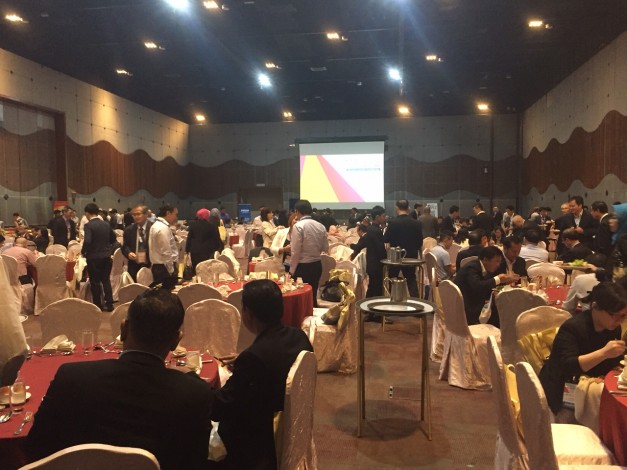
(KL, Malaysia)
Today it happened again: I was the only white person at a conference.
500+ IT-experts from all over Asia had gathered in Kl, Malaysia for a conference and I was invited as the opening keynote speaker. Everyone but me was Asian.
I love when that happens.
Not specifically that I was the only Caucasian in a big group of Asians, but the fact that I was in one way different from everyone else.
When I lived in China it happened all the time. I was the only European, everyone else was Chinese. But it can also happen when I am at a conference of nurses for example and everyone in the room but me is a woman, and so on.
What I am looking for in a group where I “fit out”.
Some people feel uncomfortable when they stand out in a crowd, or when they feel they do not fit in. I am never more comfortable, as I see it as a perfect time to better get to understand myself.
What I learnt while living in China was that it is easier to be true to who you really are when you are in an enviroment where there is no-one from your own culture/group around.
When everything is familiar, understandable and well known – then how do you know if what you think is really your thoughts? Or if your “truths” are just the collective thoughts of your surroundings?
Or to use a metaphor: Who is more likely to feel secure in knowing what his true thoughts are: the white sheep in a flock of other white sheep – or the black sheep in a flock of white sheep?
I am arguing the black sheep.
Now in my headline I wrote that we should be “grey sheep”, I did that because the image of “being the black sheep” gives us the feeling that it is somehow wrong to be the different one.
The grey sheep is different, without being the bad one. 🙂
When you are in an enviroment where all think alike, where there is no struggle or tension to stand up for what you think because everyone else thinks the same then there is a risk of us becoming mentally lazy.
On the other hand: When your beliefs and “truths” are constantly challenged by a group that has other “truths” than yours, then you are forced to look at what you believe and question why you think what you think is correct. It also gives you opportunities to fine “better truths” by seeing what another group has done.
As a speaker I am constantly invited to industry conferences where everyone else there belongs to the “tribe” of that industry.
As a global speaker (I do 90% of my work outside my country of residence) I am constantly traveling in countries and cultures that are not “my own”.
That means that I am “double” exposed to end up in enviroments where I am the only grey sheep. And I feel that it is in those circumstances that I get my clearest insights and biggest revelations. It could just be a coincidence. But something tells me that it is not.
(Suggestion: Submit your email address in the form to the right to get a convenient email summary in your inbox every time 10 new posts have been posted.)
Contact Fredrik by clicking on the email symbol below.

